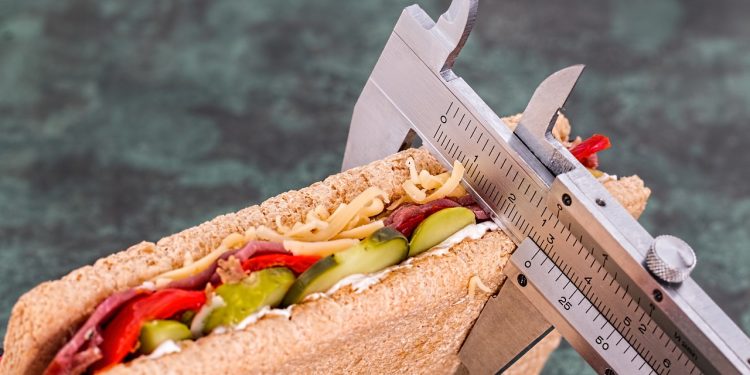Weight loss is often thought of as a simple equation: burn more calories than you consume. While this principle holds true, the balance between diet and exercise is more nuanced. Both play critical roles in achieving and maintaining a healthy weight, but their contributions differ depending on individual goals, lifestyle, and metabolic factors. Understanding the interplay between diet and exercise can help you create a sustainable approach to weight loss.
The Science of Weight Loss
At its core, weight loss depends on creating a caloric deficit, where you consume fewer calories than your body burns. This deficit forces the body to use stored energy—primarily fat—for fuel, leading to weight loss over time.
- Diet: What you eat determines the number of calories you consume. Reducing calorie intake through dietary changes is often the most straightforward way to create a caloric deficit.
- Exercise: Physical activity increases the number of calories your body burns. While exercise alone may not produce rapid weight loss, it enhances overall health, supports muscle maintenance, and boosts metabolic rate.
Both elements are essential, but their relative importance varies depending on individual circumstances.
The Primary Role of Diet in Weight Loss
Diet is often considered the cornerstone of weight loss efforts for several reasons:
- Calorie Control is Easier Through Food
It’s more efficient to reduce calorie intake than to burn the same amount through exercise. For example, skipping a 500-calorie dessert can create a significant deficit, whereas burning 500 calories through exercise might require an hour-long workout. - Food Choices Impact Hunger and Satiety
Certain foods, like lean proteins and high-fiber vegetables, keep you fuller for longer and reduce overall calorie consumption. Conversely, calorie-dense processed foods can lead to overeating despite their smaller portions. - Diet Shapes Long-Term Habits
Sustainable weight loss requires permanent changes to eating habits. Learning to choose nutrient-dense, lower-calorie foods sets the foundation for maintaining weight loss over time. - The Energy Density of Food
Foods with high energy density (e.g., fried foods, sugary snacks) pack many calories into small portions. Opting for low-energy-density foods (e.g., fruits, vegetables, whole grains) allows you to eat more volume while consuming fewer calories.
Why Exercise Matters
While diet is crucial for weight loss, exercise provides unique benefits that make it an indispensable part of a healthy lifestyle:
- Burning Additional Calories
Exercise increases your total daily energy expenditure (TDEE), helping you create a larger caloric deficit without drastically cutting calories. Even light activities like walking contribute to calorie burn. - Preserving Lean Muscle Mass
When you lose weight, the body may break down both fat and muscle for energy. Regular strength training helps preserve muscle mass, ensuring that most of the weight lost comes from fat. Maintaining muscle is also critical for keeping your metabolism high. - Improving Metabolic Health
Exercise enhances insulin sensitivity, reduces inflammation, and supports cardiovascular health. These improvements make it easier for the body to regulate weight and prevent weight regain. - Boosting Mood and Reducing Stress
Physical activity releases endorphins, improving mood and reducing stress. Stress is a common trigger for overeating, so exercise indirectly supports better eating habits. - Encouraging Long-Term Success
Studies show that individuals who maintain weight loss over time often include regular exercise as part of their routine. It’s particularly effective for preventing weight regain.
The Debate: Is Diet More Important Than Exercise?
Many experts argue that diet has a more significant impact on weight loss than exercise. However, this doesn’t mean exercise is unimportant—it simply plays a different role. Here’s a closer look at their relative contributions:
- Short-Term Weight Loss
Diet changes typically lead to faster weight loss because reducing calorie intake creates a more immediate deficit. Exercise alone is less effective in the short term because it’s challenging to burn enough calories to make a substantial difference. - Sustainable Weight Loss
Long-term weight management benefits from the synergy of diet and exercise. While diet helps control calorie intake, exercise ensures the body remains metabolically active and supports overall health. - Weight Maintenance
Exercise becomes more critical in the maintenance phase of weight loss. After reaching your goal weight, staying active helps balance calorie intake and prevents regain. - Health Beyond Weight Loss
Exercise offers numerous benefits that diet alone cannot provide, including improved cardiovascular fitness, enhanced mental health, and stronger muscles and bones.
Finding the Right Balance
The optimal balance between diet and exercise varies depending on individual goals, preferences, and lifestyles. Here’s how to create a plan that works for you:
- Focus on Diet for Initial Weight Loss
Start by making sustainable changes to your eating habits. Prioritize whole, minimally processed foods, reduce portion sizes, and limit added sugars and unhealthy fats. - Incorporate Exercise Gradually
If you’re new to exercise, start with manageable activities like walking, yoga, or swimming. Gradually increase intensity and frequency as your fitness improves. - Combine Strength and Cardio
For the best results, include both strength training and cardiovascular exercises in your routine. Strength training preserves muscle mass, while cardio helps burn calories and improves heart health. - Set Realistic Goals
Unrealistic expectations can lead to frustration and burnout. Aim for gradual, consistent progress rather than rapid weight loss. - Track Your Progress
Use a food journal, fitness app, or wearable device to monitor your calorie intake, exercise, and overall progress. Tracking helps you stay accountable and identify areas for improvement. - Prioritize Consistency Over Perfection
The occasional indulgence or skipped workout won’t derail your efforts. What matters most is maintaining healthy habits over the long term.
Practical Tips for Success
- Plan Your Meals
Meal prepping and planning can help you avoid impulsive, unhealthy food choices. Include a balance of lean proteins, complex carbohydrates, healthy fats, and plenty of vegetables. - Stay Active Throughout the Day
Small bursts of movement, like taking the stairs or stretching during breaks, add up over time. Incorporate these habits into your daily routine to boost calorie burn. - Stay Hydrated
Drinking enough water supports metabolism and helps you distinguish between hunger and thirst. Aim for at least 8–10 cups per day, or more if you’re active. - Get Enough Sleep
Poor sleep disrupts hunger hormones and increases cravings for high-calorie foods. Aim for 7–9 hours of quality sleep each night to support weight loss and overall health. - Address Emotional Eating
Identify triggers for overeating and develop healthier coping mechanisms, such as journaling, meditating, or seeking support from friends or a therapist.
Tailoring Your Approach
Everyone’s weight loss journey is unique. Factors like age, metabolism, medical conditions, and activity levels all influence how diet and exercise impact your results. Experiment with different strategies to find what works best for your body and lifestyle.
By understanding the complementary roles of diet and exercise, you can create a balanced, sustainable plan that promotes not only weight loss but also long-term health and well-being.










